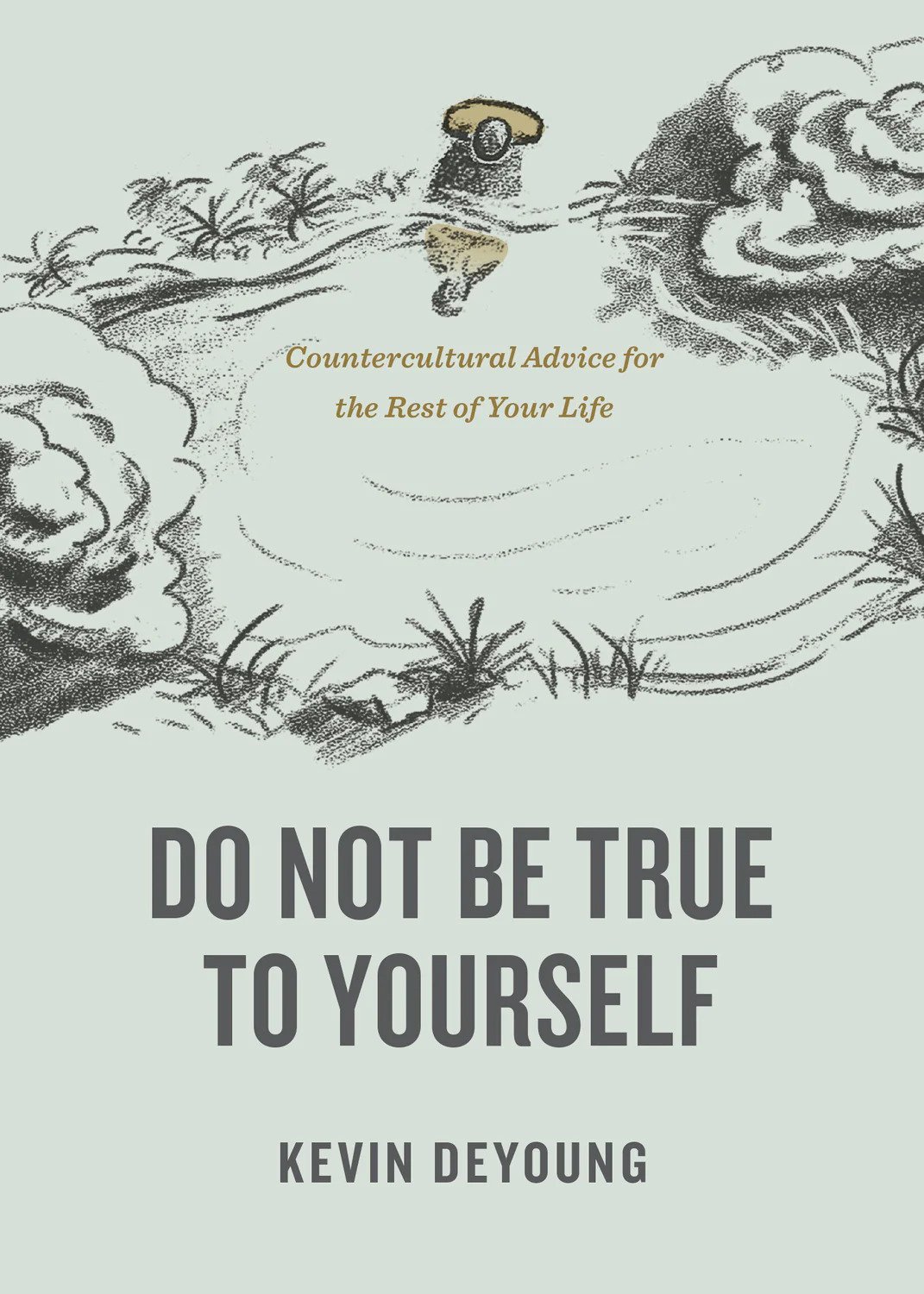Graduating from high school is a unique moment. A time-between-times. A moment where we exist between who we have been and who we are becoming. As a transition space its edges are hard to define—when does childhood end and adulthood begin? But it is for this reason an incredibly important and formative period, often becoming “make or break” for those wrestling with their faith.
So I’ve often been disappointed at the lack of resources targeted at this age group. As someone in youth ministry, I feel like the choice is often between a book that aims too low, or one too long and academic—neither of which serve this group well. Which is why I was excited to hear about Kevin DeYoung’s new book, Do Not Be True To Yourself, specifically targeted at this transitional time. Plugged by one recommendation as “the book to give to your graduating high school and college students,” it’s a snappy 56-page book seeking to disciple us away from “just be true to yourself,” and towards a faithful and countercultural life for God.
The opening chapter is a reworked graduation address of DeYoung’s, where he provocatively states, “Whatever you do, do not be true to yourself.” (2) Touring through the story of Esau’s birthright, historical confessions, modern philosophy, and Pixar, Kevin deftly puts forward an accurate portrayal of how our desires will not lead us to a better life, but will lead us astray. Just listening to your heart will not work, because we are bound to sin. But Christ offers a better way, thus he concludes, “The real you is worth letting out if the real you is dead to sin and alive in Christ Jesus.” (8)

Do Not Be True to Yourself: Countercultural Advice for the Rest of Your Life
Kevin DeYoung
Do Not Be True to Yourself: Countercultural Advice for the Rest of Your Life
Kevin DeYoung
Serious & Single-Minded Christianity
The next four chapters, to risk oversimplifying, call us to take Christianity seriously and personally, largely having in view the double-minded, uncommitted, cultural Christian. Chapter two draws from the story of Joshua and his call for the Israelites to covenant faithfulness. Pressing into our half-hearted tendencies, it exposes our idols and exhorts us to serious and single-minded devotion: “God wants us all in or all out. Choose this day whom you will serve.” (17)
God wants us all in or all out. Choose this day whom you will serve.
As an Australian, it’s hard to get past the Americanisms in the third chapter, where Kevin more specifically addresses graduating students who will soon go to college or university.
You’ll get ready over the summer. You’ll buy some dorm furniture. You’ll say goodbye to your friends. You’ll say goodbye to your parents… (20)
Perhaps only the first statement was true for me. Yet despite being somewhat culturally removed, the principle here is still crucial:
Decide today that you will get up on the first Sunday morning and find a good gospel-preaching, Bible-believing church. (28)
In a way that is direct, yet filled with pastoral wisdom, Kevin holds out the centrality of the church. If you’re to choose to follow Jesus, his church must be part of that decision.
In the penultimate chapter we are introduced to “Two Ways to Live” (but not the six-boxed evangelistic kind), through an exposition of Psalm 1. Here the pace of the book slows as Kevin draws out ethical, emotional, and spiritual applications from the Psalm’s verses. It’s a gentle push to consider the ways of the wise, the patient, the fruitful and firm, the righteous.
The book closes with “Horseshoes, Hand Grenades, and the Kingdom of God.” The point? Near enough may be good enough for some things, but not when it comes to God’s Kingdom. Unpacking the story of the questioning scribe in Mark 12, Kevin makes the important distinction between what is good, and what counts. Like the scribe, you may have all the right beliefs, attitudes, and actions, and these are good, but you may find yourself only close to the kingdom, not in it. These last few pages of the book hold out the gospel in a clear and compelling way. “The difference between being close and being in is bowing the knee to Jesus.” (54)
How Does it Land?
There’s a lot to like about this book. Kevin has a way of summarising complex and ephemeral ideas in a clear and punchy way, coupled with gentle and pastoral wisdom. I often found myself nodding along with his cultural observations, before turning the page to find him pressing into my heart, challenging my thinking and desires. It’s engaging, and it moves quickly.
However, in the midst of its excellent points, I wonder if it hits the spot. After reading it I couldn’t help but feel like it was missing something. I went away having heard compelling calls to be serious in my commitment to Jesus, and with good reasons why not to be true to myself, but with little to touch the heart regarding the why of following Jesus. In an effort to address the cultural situation head-on, this has perhaps also meant the book is somewhat back-to-front. Only in the last few pages do we get a clear picture of why Jesus is better, which would potentially give more weight to the preceding exhortations.
I went away … with good reasons why not to be true to myself, but with little to touch the heart regarding the why of following Jesus.
I’ve found Kevin’s articles and podcasts surrounding the book excellent and profoundly helpful in many ways, but the book itself seems to lack some of the heart and explanation that makes the case even more compelling.
Most significantly though, I’m unsure I’ve met a graduating teen who would fit the requirements to get the most out of the book. Cultural particularities aside, to track all of the points made the reader needs some understanding of the is-ought fallacy, Disney movies, key figures and confessions of church history, and a decent grasp on biblical texts.
It’s clear that Kevin’s writing for a different cultural context to the one I’m in. But of the graduating teens I know, very few would be in such a position to get the most out of the book, and those that could are probably those that least need this advice.
Would I still give this book to others? Absolutely, it does raise some excellent countercultural advice, and would lend itself well to reading with someone. But is it the book to give to graduating teens? I don’t think it quite hits that mark.












